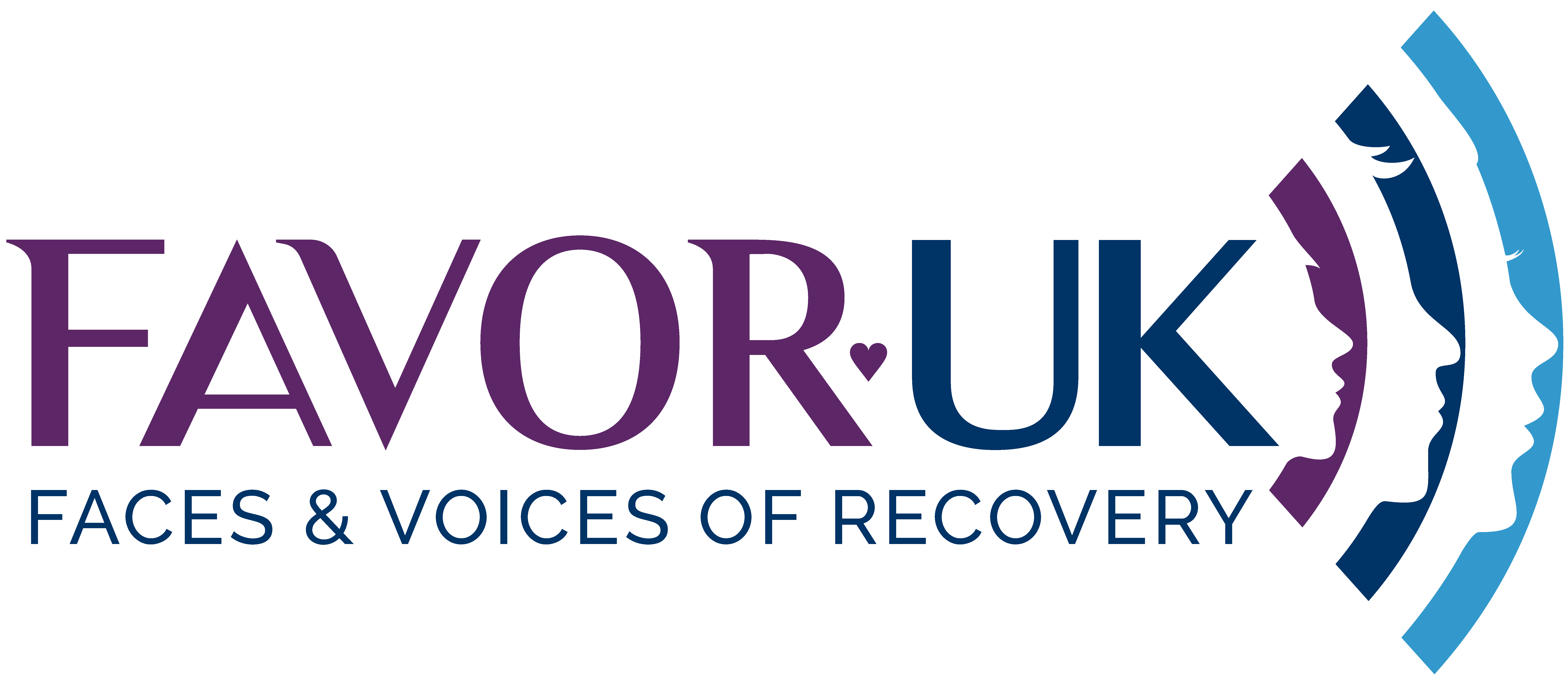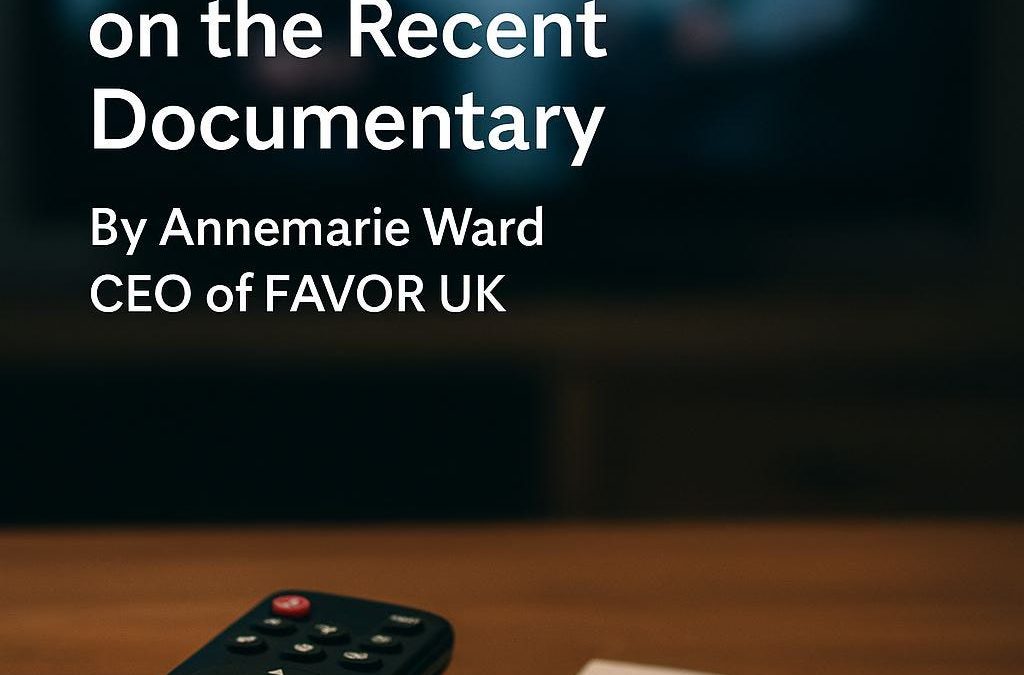APR 01, 2025
A new documentary BBC Disclosure documentary One more fix has just aired, shining a spotlight on Scotland’s drug death crisis a subject that is as complex as it is emotive. The film specifically focused on the opening of the UK’s first official Drug Consumption Room (DCR), based in Glasgow, and the ongoing debates around how best to tackle the country’s shocking rate of drug-related deaths.
First and foremost, I want to say well done to the production team. It’s never easy to cover this issue fairly and sensitively, and I appreciate the clear effort they made to include a range of voices, including those with lived experience.
That said, I want to share some reflections. Not as criticism, but as an invitation to think more deeply about how we shape the public conversation around addiction and recovery. Because the way we tell these stories matters. It influences how policymakers, the media, and the public understand what treatment and recovery actually mean — and what solutions should be prioritised.
🎯 Why Framing Matters
One moment in the documentary particularly stood out. The way the film cut from the testimony of Catriona Matheson — a pharmacist who led Scotland’s Drug Death Task Force — straight to commentary about how “rehab isn’t for everyone,” followed by footage of David Clarke and references to his “four failed rehab attempts.”
For anyone who doesn’t know, the Drug Death Task Force was set up in 2019 as an emergency response to Scotland’s escalating drug deaths. It was presented as a high-profile PR exercise to show that action was being taken. Yet, three years later, it was quietly disbanded after dispensing with at least £40 million of public money that we know about, much of it spent on research, reports, bureaucracy, and academic exercises that, frankly, never helped a single person into recovery. In fact, during its lifetime, drug deaths tragically rose by another 12%.
That editorial choice, cutting from Catriona’s testimony to the claim that “rehab isn’t for everyone,” followed immediately by David’s story — subtly but powerfully shaped how viewers might interpret the debate. It suggested that rehab is unrealistic or ineffective because it “doesn’t work” for people like David.
But here’s the reality: most people affected by addiction in Scotland will never even get one meaningful opportunity at structured, therapeutic rehab, let alone four.
That distinction is crucial. Because if the public is led to believe people are being repeatedly “sent to rehab” and failing, they may question why we should fund it at all when in truth, very few ever get the chance.
The Truth About ‘Treatment’ – And Why It’s Not What You Think
There’s another misunderstanding that keeps being repeated in these conversations and the documentary missed the chance to address it.
When the general public hears the word treatment, they obviously think of rehab. They think of helping somebody get off drugs and alcohol. That’s what I thought too, once.
But when you lift the lid on Scotland’s so-called ‘treatment system,’ you quickly realise that’s not what’s actually being offered. Treatment, in the current system, rarely means helping someone into lasting recovery. More often, it means a harm reduction intervention of some sort — a prescription, a referral, wound care, “stabilisation” naloxone, or another sticking plaster, but not actually helping people get off whatever substance they are dependent on.
For years now, the word treatment has been twisted and sanitised by bureaucrats and policy advisors until it means almost anything except helping a person find freedom from drug or alcohol dependency. A prescription is called treatment. A keyworker appointment once every three months is called treatment. A brief conversation about housing is called treatment.
And let me be clear, harm reduction has its place. Naloxone saves lives. Needle exchanges prevent disease. But none of that is recovery. None of that is a pathway out of addiction. It’s crisis care, and it’s essential, but it should never be the sum total of what we offer people. Yet that is exactly where we’ve landed here in Scotland.
When the public hear the word treatment, they think of detox, rehab, counselling, safe housing, recovery communities, employment support, a real chance at rebuilding a life. But the system thinks of stabilisation, managed decline, waiting lists, and keeping people alive without offering them the opportunity to actually live.
That’s why the Right to Recovery Bill matters so much. It’s about reclaiming the meaning of treatment. It’s about making sure that when someone asks for help, they don’t just get put on methadone forever, handed a leaflet, or offered Antabuse and nothing more. They get choice. Real access to detox, rehab, counselling, peer support, housing, employment services, the full package.
Because people don’t just deserve to survive their addiction. They deserve the chance to recover from it.
⚖️ The Bigger Picture: Balance and Choice
Another part of the documentary concerned me. After I made a clear point on camera that we’re not opposed to harm reduction interventions like Drug Consumption Rooms — but simply want a more balanced system that also invests properly in recovery — the film soon cut to Dr. Saket Priyadarshi, the clinical lead for Glasgow’s DCR plans and someone with significant influence over how Glasgow’s £50 million addiction treatment budget is spent.
I’ve written about Dr. Priyadarshi before because of the prominent role he plays in shaping how resources are allocated across Glasgow’s addiction services.
In the documentary, Dr. Priyadarshi framed the debate as “binary.” He went on to say: “We end up having this polarised debate — that we should put all our money in one thing and not the other.” He presented this as a logical, reasonable observation, arguing that we probably want all of these services — harm reduction, recovery programmes, treatment options.
On the surface, that sounds sensible ofcourse it is, I make it all the time. But what the documentary didn’t explain — and what Dr. Priyadarshi conveniently failed to mention — is that the debate isn’t actually balanced at all. It’s not a case of funding being fairly distributed between harm reduction and recovery services. The reality is stark:
In Glasgow alone, of the £50 million annual budget for addiction services, only £1.3 million is spent on residential rehab. Just £300,000 supports grassroots recovery communities like the one Davie visited at the end of the documentary — and that funding is not guaranteed year to year.
The overwhelming majority of public money is funnelled into harm reduction interventions — including the city’s new DCR project that Dr. Priyadarshi leads. Yet the way he framed the discussion suggested that resources are being fairly split between both approaches, which is simply not true and he knows that fine well.
It’s not a binary debate because the funding already is overwhelmingly weighted toward harm reduction. All we’ve ever asked for is balance — the chance for people to have real, meaningful access to recovery services alongside harm reduction, not instead of it.
That crucial context was missing from the film.
🌱 Recovery Is Not All or Nothing
Lastly, I felt the film oversimplified recovery journeys by contrasting Davie’s story, someone with long-term, deeply entrenched addiction, with that of his daughter, who was able to recover in the community after a period of problematic use.
While both stories are valid, most people’s recovery journeys fall somewhere in between. Many need structured, residential rehab to break free. Others will recover through community support. But what really matters is that they are offered choice, something too few people in Scotland currently have.
🔥 Why This Conversation Matters
I want to be clear: I value the effort and care that went into this documentary. It opened an important conversation and brought real lived experiences to the fore. My reflections are not about pointing fingers, they’re about recognising how these stories are framed, because those frames have real-world consequences.
They shape public understanding. They influence how policies are written and how money is spent. And ultimately, they impact whether people struggling with addiction get a chance at recovery, or whether they remain stuck in a system of managed decline.
The Right to Recovery Bill will not fix everything overnight. But it will enshrine in law what should have been the starting point all along: the right to real, evidence-based treatment and recovery support.
It will force the system to offer choice, not just a prescription pad.
It will make the Government accountable for actually providing pathways out of addiction, not just pursuing the delusion of managing and controlling it year after year.
And most importantly, it will give people and their families the power to demand better.
My hope is that this documentary is only the start of the conversation.
#OneMoreFix #Disclosure #Drugdeaths #Recovery #Rehab #BBC

